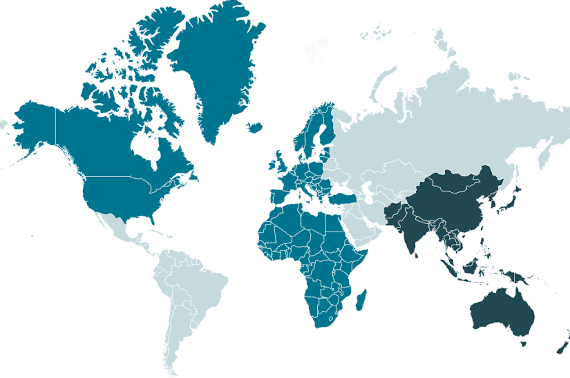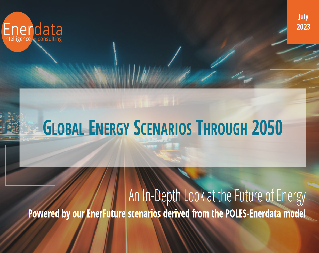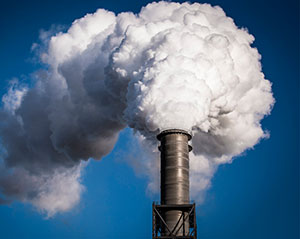Global Energy Outlook
Global Energy Outlook (EnerOutlook)은 무료 온라인 대화형 데이터 소프트웨어로서 직관적인 지도와 그래프를 통해 데이터를 검색하고 에너지 업계의 장기적인 추세를 시각적으로 분석 할 수 있습니다.
이 모든 것들은 전세계적으로 그리고 세계 지역별로 볼 수 있습니다. 이 인터페이스는 화석 연료 가격, 재생 에너지, 이산화탄소 배출에 관한 정보뿐만 아니라 에너지 공급과 수요에 대한 예측치를 제공합니다.
이 애플리케이션은 전체 EnerFuture 글로벌 예측 서비스에서 발췌한 것입니다. POLES 모델을 기반으로 합니다.
EnerFuture에서는 세 가지 글로벌 에너지 및 기후 시나리오를 고려합니다.
- EnerBase: 에너지 소비 및 관련 배출량의 역사적 추세가 2050년까지 유지되는 일상적인 시나리오입니다.
- EnerBlue: NDC(Nationally Defined Contributions)의 성공적인 달성을 기반으로 하는 시나리오.
- EnerGreen: 2100년까지 지구 온도 상승을 2°C 미만으로 제한할 수 있는 야심찬 시나리오.
예측 액세스:
- 전기 및 재생 에너지에 대한 세부 정보와 함께 총 1차 및 최종 소비량;
- CO2 배출량;
- 에너지 및 기후 지표;
- 7개의 지역으로 나눠 전 세계에 적용;
- 샘플 국가(브라질, 캐나다, 헝가리, 터키 및 베트남)의 스냅샷 전용 탭이 있습니다.
- 2050년까지의 데이터를 포함합니다.
- EnerBlue 시나리오의 자세한 결과와 EnerBase 및 EnerGreen 시나리오의 주요 수치.
고급 분석을 위한 자유로운 *xls 파일 내보내기.

Our forecasting experts just released the 2023 edition of our 2050 Global Energy & Climate scenarios.
More information11
Apr
According to a white paper from the China Energy Storage Alliance (CNESA), China’s battery storage capacity addition is expected to slow down from 34.5 GW in 2023 to 30.1 GW in 2024 (-13%) under conservative estimates, as energy storage struggles with low profitability, cause most notably by high upfront costs. With more favourable conditions, new addition in China are forecast to increase by almost a fifth in 2024 to 41.2 GW, which remains, however, below the projected 35% global growth rate of battery storage capacity addition. China needs battery storage as a back up to integrate rising intermittent renewables capacity into power grids, in a context where gas-fired capacity is limited.
10
Apr
The local Chinese government of the Shanxi province has published the "2024 Work Plan for Stable Coal Production and Supply in Shanxi Province", proposing a slight reduction in the coal output to reach 1.3 Gt during 2024. Citing safety concerns and weak demand that caused a fall in prices, the province will voluntarily reduce 4% of its coal output from the 1.36 Gt produced in 2023. However, production is expected to increase in the coming months to reach the 1.3 Gt of coal during 2024, due to mines working under 70% of the registered production capacity because of production restrictions.
29
Mar
According to the US Energy Information Administration (EIA), the US gas production increased by 4% in 2023, thanks to a higher output in the three largest producing regions of Appalachia, Permian, and Haynesville, which jointly accounted for 59% of all natural gas production in the United States. The Appalachia region accounted for 29% of domestic gas production but its output growth slowed down in 2023 due to insufficient pipeline capacity to serve demand markets (no new major pipeline capacity addition in 2023). The Permian region accounted for 19% of domestic production and its gas production grew by 13% in a context of high oil prices boosting oil and associated gas production. Finally, the Haynesville region accounted for 13% of domestic production, with a slower production growth owing to low natural gas prices. The EIA Short-Term Energy Outlook expects a modest production contraction in 2024, due to low natural gas prices and a relatively stable rig count.
25
Mar
The US Department of Energy (DOE) has released the Atlantic Offshore Wind Transmission Study, a two-year study evaluating transmission options to support offshore wind energy deployment along the Atlantic Coast of the United States. The study was based on deploying 85 GW of offshore wind off the Atlantic Coast by 2050, and it analysed various potential scenarios for offshore transmission considering the costs and benefits of each pathway, providing a multi-regional planning perspective.




